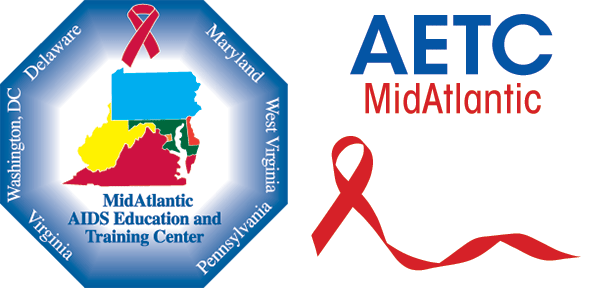HIV Medical Management: In Person Clinical and Virtual Didactic Experience for Providers
Details

Description
The audience for this course is limited to clinicians who wish to provide HIV treatment or who are currently providing treatment. This includes physicians, nurse practitioners, physician assistants, pharmacists, nurses and dentists.
This extensive three day CME HIV clinical training program consists of two virtual didactic days on Monday and Tuesday October 17-18 and one in-person clinical training day on Wednesday, Thursday, Friday, October 19, 20, 21 or Tuesday, Wednesday, Thursday, October 25, 26, 27, 2022.
The first two days will be virtual and feature expert faculty who will discuss cutting-edge HIV topics such as outpatient management, antiretroviral use, clinical use of resistance assays, and co-morbidities (including Hepatitis C, cardio vascular disease and STIs), management of women, perinatal transmission, psychosocial, substance use and legal issues.
The third day will be in person on one of the six days listed above starting at 8:30 AM to 4:00 PM. The in person observation will be spent in Drexel University College of Medicine’s Division of Infectious Diseases and HIV Medicine HIV service, Partnership Comprehensive Care Practice.
CME hours have been applied for.
Questions: Call or text Susan Thompson 267.847.6396
CME Program Code: 22251
TARGET AUDIENCE: Physicians, nurse practitioners, nurses, physician assistants, dentists, pharmacists, and emergency medical services professionals
LEARNING OBJECTIVES: Participants will be able to:
Describe the medical management of HIV
Discuss what medications to initiate and the role of resistance testing
Identify legal parameters that need to be met when providing HIV testing or care
Recognize treatment options for HCV in the patient with HIV
Describe HIV testing technology and HIV testing and special issues in treating adolescents
Discuss the role of nPEP/PrEP in HIV care
Identify cardiovascular complications of HIV and their ramifications for treatment
Differentiate care issues unique to women
Illustrate nutritional challenges for patients with HIV
Examine the interaction of STIs on the treatment and prevention of HIV infection
Examine trauma informed care as a way to address stigma and retention in care
Explain the role of medically assisted treatments for patients with substance use disorder
Explain strategies to address nicotine addiction and assist smokers in quitting
ACCREDITATION STATEMENT
This activity has been planned and implemented in accordance with the accreditation requirements and policies of the Accreditation Council for Continuing Medical Education (ACCME) through the joint providership of Drexel University College of Medicine and the MidAtlantic AIDS Education and Training Center of the Health Federation of Philadelphia. The Drexel College of Medicine is accredited by the ACCME to provide continuing medical education for physicians.
AMA Credit Designation Statement: The Drexel University College of Medicine designates this live activity for a maximum of 21.0 AMA PRA Category 1 Credit(s)™. Physicians should claim only the credit commensurate with the extent of their participation in the activity.
AOA: This program is eligible for 21.0 credits in Category 2A of the American Osteopathic Association.
Requirements to receive credits: Continuing education credits will be awarded to those who registered for the program, attend the entire program, complete the discipline-specific requirements and program evaluation.
ACKNOWLEDGEMENT:
Supported by a grant from the Health Resources and Services Administration (HRSA),
HIV/AIDS Bureau, Office of Program Support, No. U1OHA29295
Targeted Populations
A variety of the listed populations will be discussed at this event.
- Women
Materials
Topics
A variety of the listed topics will be discussed at this event.
- Acute HIV
- Adult and adolescent antiretroviral treatment
- Aging and HIV
- Antiretroviral treatment adherence, including viral load suppression
- Clinical manifestations of HIV disease
- Linkage to Care
- Retention and/or re-engagement in care
- Hepatitis B
- Hepatitis C
- Malignancies
- Nutrition
- Opportunistic Infections
- Sexually transmitted infections
- Cultural competence
- Stigma or discrimination
- Cultural Competency/Cultural Humility
- Case management
- Community linkages
